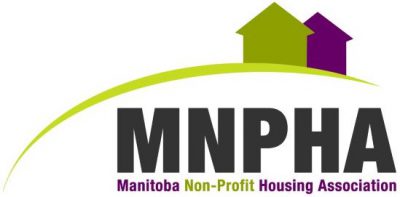The Asper School of Business partnered with MNPHA to expose business students to the non-profit housing sector, and benefits the sector by having students assess opportunities related to its most critical future business challenges. The “Case Competition” gave teams of business students a business case with questions to respond to, and 24 hours to develop a 10 minute presentation to a panel of judges on their solution. We asked the students to respond to “Incentivising Amalgamation” in the non-profit housing sector.
Background
For decades the looming threat of board senescence has vexed the social housing sector of Manitoba and has been a major cause of concern.
Registered non-profit organizations that provide housing in Manitoba formed over time, starting in the 1970s during the federal government housing boom. Many service clubs (church groups, legions, etc.) created separate non-profit organizations to construct social housing projects and help provide assistance to those in need. By appointing a board of directors to manage the building and its normal operations, many of these non-profit housing providers began operating under the ‘One-Board, One-Building’ model.
Other service organizations, who provide support to specific population segments, have received funding to construct social housing and expand their services through the social housing sector.
In addition to societal factors such as reduced community and volunteer involvement by younger Canadians, long-time board members are finding it difficult to adapt in recognition of changing needs. The financial model of the social housing sector has also become a greater issue in recent years, as it has become more difficult to recruit skilled and experienced employees willing to burden the load of managing the operations of a large residential building for a modest salary.
The Power of Amalgamation
The amalgamation of not-for-profit housing providers can create larger and stronger housing organizations to manage and oversee the needs of a collective pool of building assets. Prioritizing long-term, more robust, goals over small wins and quick changes was what led to the successful merger between Autumn House, a care providers charity located in Winnipeg, and Bethel Place, a similar housing initiative run by the Mennonite Seniors Housing Network. The new network jointly governs over 200 housing units for adults and seniors of 55 and over.
A major issue with amalgamating, however, is the potential loss of independence and autonomy for the boards of each member organization. Though merging with other housing providers might offer greater financial strength, such an amalgamation could hinder flexibility and introduce more bureaucracy in a sector where internal roadblocks ultimately impact service delivery and may risk decreased responsiveness to their community and population needs. Longstanding member organizations who have been successful in providing their services to those in need value their independence and dread the idea of answering to a higher authority.
We asked students:
- In your opinion, what is the future of the social housing sector in Manitoba?
- Based on best practices from your research, what are the various shapes of amalgamation available in the social housing sector? What would be your recommendation for the members of the Manitoba Non-Profit Housing Association?
- Identify the value proposition for amalgamations and provide potential measures for success (i.e: key performance indicators)
- How would you incentivize member organizations to amalgamate with each other and motivate them to operationalize such a strategy?
- What incentives should the MNPHA advocate to funders and regulators of the non-profit housing sector? Of those incentives, which ones could MNPHA develop itself?
Summary of Students’ Presentations
Five teams of students participated in the case competition. Many of them had limited knowledge of the non-profit sector and expressed a strong interest in supporting the sector. They let the judges know that they learned a lot through the process and were surprised by the many organizations and people across Manitoba engaged in creating and sustaining affordable housing.
The top two teams presentations are attached. Remember: they had 24 hours to come up with the presentations, and were not able to speak with those working in the housing sector so some of their assumptions need some refinement! The teams that were most successful in the competition recognized:
There is a strong case to be made regarding amalgamation in the non-profit housing sector:
- Amalgamation saves money through reduced/shared administration. This money can be used towards maintenance and repair or other organizational priorities
- It can help reduce the number of boards and therefore assist in board recruitment/retention
- It can help address staffing challenges by reducing redundancies, potentially leading to higher salaries and growth opportunities for those working in non-profit housing
- It can lead to higher quality organizational infrastructure (especially in IT and Finance), greater access to networks for fundraising, and expand programming capacity
- Greater negotiating power with contractors, governments, funders
There are challenges with amalgamation that need to be addressed:
- The upfront cost burden is limiting, both hard costs in terms of legal fees and the time of board and staff members
- The potential clash in values requires difficult conversations, and high capacity boards and staff to negotiate the partnerships
- Fear of change and loss of control can create resistance
Recommendations that MNPHA and the sector can implement to incentivize and support sector amalgamation included:
- Volunteer development opportunities to recruit and train board members who can support organizations considering a merger
- Case studies and standardized frameworks for governance approaches
- Support with cost-benefit analyses
- Advocate for upfront transition costs for organizations and bonuses for shared services or other efficiencies
MNPHA’s Board of Directors has prioritized sector collaboration and amalgamation in our strategic plan. Our role in the sector as convener, ‘seed planter’, advocate, capacity builder, and leader means we will be there to support the sector in voluntary amalgamation. If your organization is considering its long-term future and wants support from MNPHA to assess options for partnerships with other like-minded non-profit organizations, call us at 204-797-6746 ext.1 or email [email protected]

Recent Comments